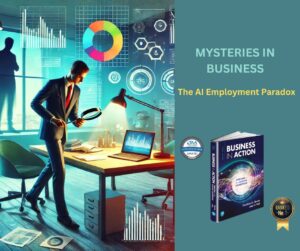
The AI Employment Paradox: Job Creator or Job Destroyer?
Artificial intelligence is revolutionizing the workplace in 2025—but whether it’s a blessing or a curse for jobs remains one of the great paradoxes of our time.
On one hand, AI is seen as a massive job creator. It’s unlocking entirely new industries, from AI ethics consulting to prompt engineering, and automating routine tasks so humans can focus on higher-value, creative work. Businesses using AI often report improved productivity and reduced burnout. McKinsey estimates that AI could add trillions to the global economy by 2030, and proponents argue that just as the internet created jobs we couldn’t imagine in the 1990s, AI will do the same now.
But on the other hand, AI is a powerful job destroyer—especially for roles involving predictable, repetitive tasks. Administrative, data entry, customer service, and even entry-level writing jobs are increasingly being replaced or augmented by AI tools. The fear isn’t just automation—it’s acceleration. Roles aren’t being phased out over decades but potentially in a few years, leaving many workers with little time or support to retrain. And AI’s rapid advancement is outpacing many education systems and workforce development programs.
So the paradox stands: AI is simultaneously the engine of economic opportunity and a looming threat to employment stability. Whether it becomes a net positive depends on how governments, educators, and businesses respond—with policies, reskilling initiatives, and ethical frameworks that ensure human potential isn’t left behind.
In 2025, the future of work is still being written—and AI is holding the pen.